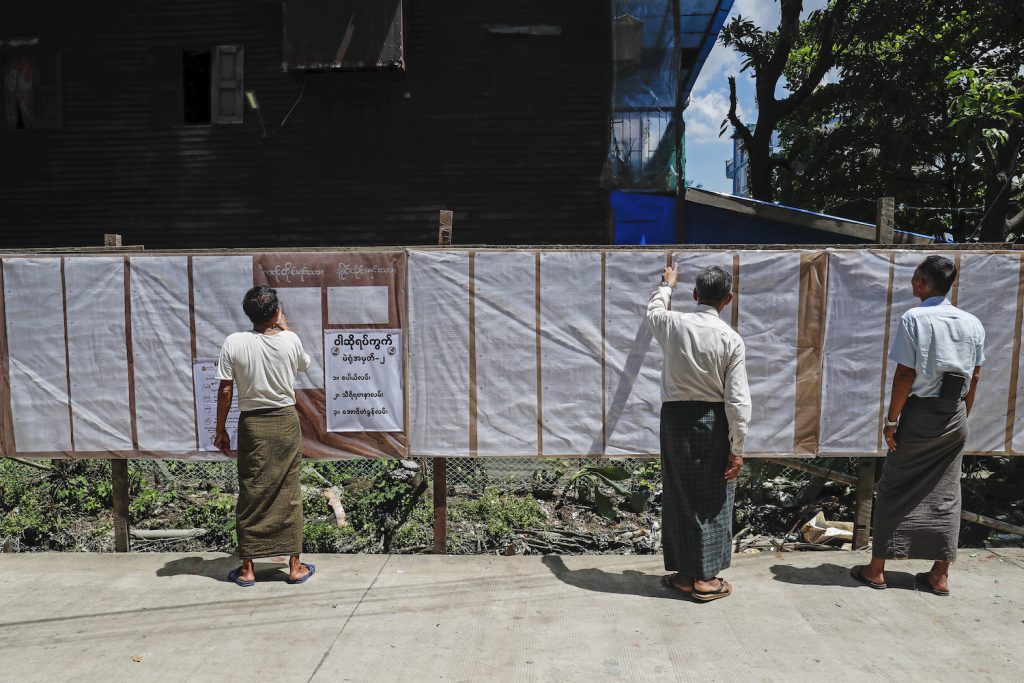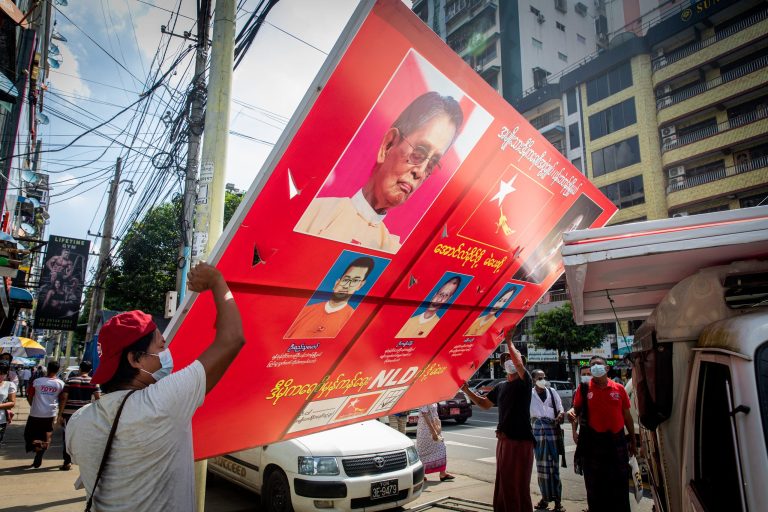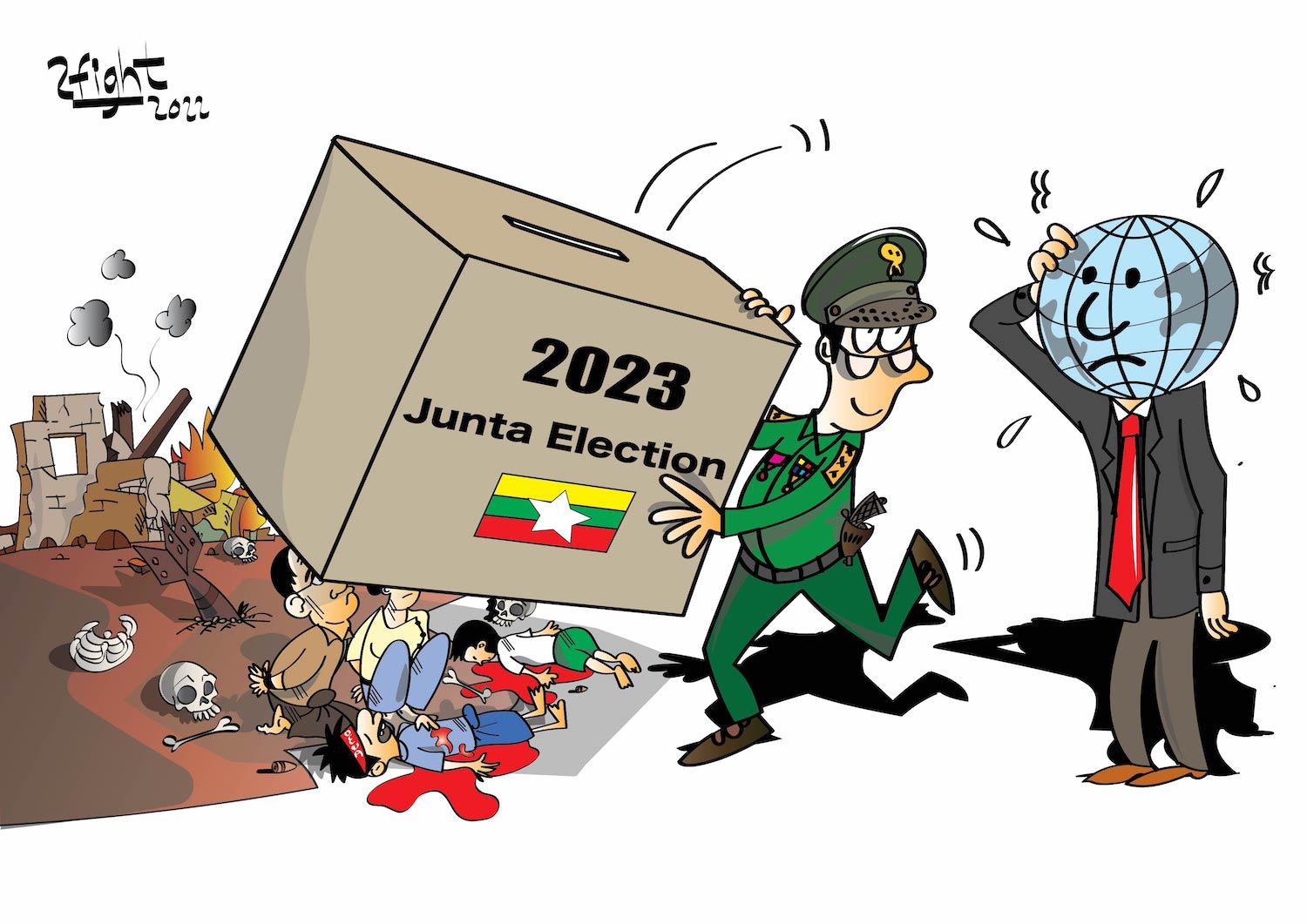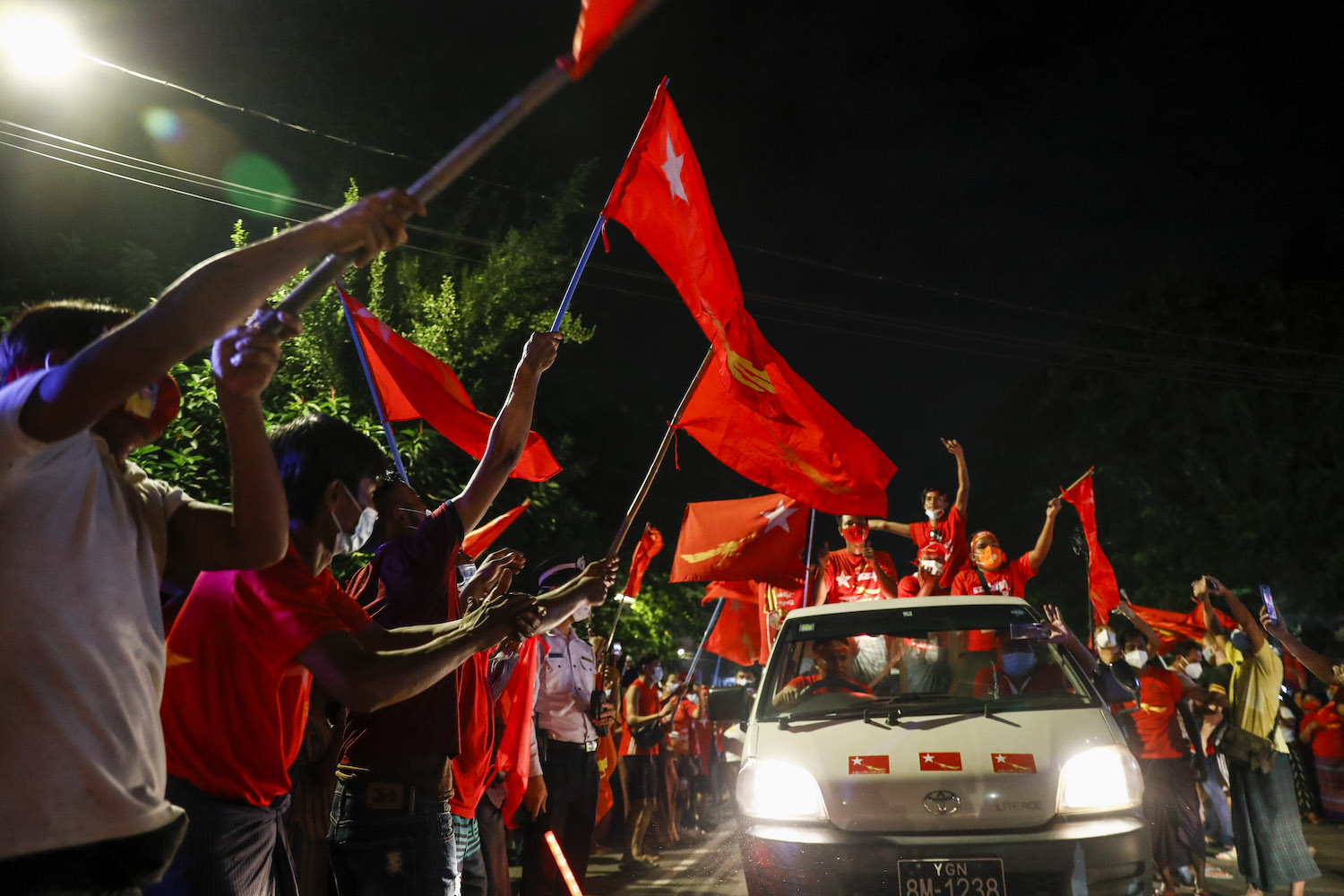The Union Election Commission and the government departments it partners with must urgently address flaws in voter lists that threaten the credibility of the election.
By SITHU AUNG MYINT | FRONTIER
Voter lists for the November 8 general election were published on July 25 and will remain on public display until August 14 following a one-week extension. The lists have come under widespread criticism because of missing names and incorrect entries, such as the listing of people who have died or who have moved to another constituency.
State Counsellor Daw Aung San Suu Kyi discussed the criticism during a videoconference on August 5 with Minister of Labour, Immigration and Population U Thein Swe, Union Election Commission member U Myint Naing and U Htet Aung, deputy director-general of the General Administration Department, backbone of the bureaucracy. Thein Swe said there were even errors in his family’s entries, and a clearly irritated state counsellor asked why the errors had occurred.
Accurate voter lists are essential for holding a credible election because they ensure that eligible citizens do not lose their right to vote and that the ballot reflects the popular will. But there have been problems with voter lists in Myanmar since the election in 2010 that marked the beginning of the transition to democracy.
After Myanmar became independent in 1948, general elections for the nascent parliamentary democracy were held until the military seized power in a coup d’etat in 1962. In those early years, voter lists were announced in advance and political parties would copy them and send volunteers door-to-door to check their accuracy with voters. If a voter’s name was missing or if entries were wrong or included dead people, the party volunteers would help to correct the errors.
In the five decades between 1962 and 2010, the only multi-party election was held in 1990. It resulted in a landslide for the National League for Democracy headed by Aung San Suu Kyi, but the ruling military junta did not honour the result.
The holding of fresh multi-party elections was the fourth step of the seven-step roadmap to democracy unveiled by the junta in 2003 but the election in 2010 was boycotted by the NLD. The junta-appointed UEC based the voter lists for that election on household registration information. Political parties could obtain copies of the lists after they went on display but had to pay K200 for 20 voters’ entries, or K20 for one name. In a densely populated urban constituency of about 100,000 people, it would cost about K20 million to copy a complete list. This meant that political parties could not afford to acquire copies of lists and check the accuracy of entries.
The next general election, in 2015, was held the year after a national census was conducted at considerable expense with the assistance of the international community. However, the new, computerised register of voters was not based on census data but, similar to 2010, on the names and biographical information contained in household member lists. Because these household lists are often outdated, and the transposing of data from these hand-written lists to computer spreadsheets left ample room for human error, the lists that went on public display in 2015 were riddled with mistakes and omissions.
Many voters were not listed, but dead people were. In Yangon Region alone, nearly 150,000 eligible voters had to complete forms at ward election sub-commission officers in order to be included. The situation alarmed the NLD and other opposition parties, but after the NLD won the election by a landslide, the problems with the voter lists were forgotten.
The current UEC, whose members were appointed by the NLD government, has overseen a door-to-door exercise to update the voter lists with the help of local officials of the GAD and immigration department, rather than just relying on household member lists and voters filling out forms during the public display period. Given the recent criticism of the lists, this exercise was clearly inadequate.
After the state counsellor expressed her displeasure during the August 5 videoconference, immigration minister Thein Swe and the GAD’s Htet Aung attributed the many errors in the lists to the low educational level of data collectors, a careless approach to the task, mistakes in transferring data to computers, and an absence of reviews and verification. They promised that entries would be corrected before the final lists go on display in October.
For democracy to flourish in Myanmar there must be regular elections, for which voter lists are a fundamental element. It is questionable whether an election can be free and fair in the absence of accurate voter lists. The UEC and partner agencies can, and must, do better.







